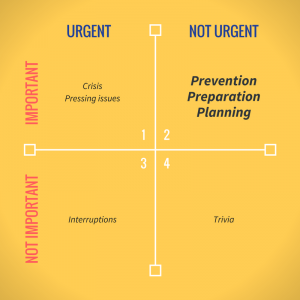Have you sought feedback lately?

Seeking feedback can be immensely helpful. Whether you’re looking to upgrade your current role or change careers entirely, feedback can help you target and develop your emerging strengths. Here are some of our favourite ways to make the job of seeking feedback a little easier.
Start with the right mindset. Embrace the idea that feedback is about growth more than glory. Accept it’s not all about validating what you already love about yourself. Instead, see it as a basis for improving and developing. Adopt a growth mindset and think “What am I doing well AND what could I do better?”.
Ask the right people in the right way. Only ask people who you know will give you honest and constructive comments aimed at helping you develop. Be sure to give them a heads-up first. Let them know in advance that you’d appreciate their insights on what you did well and what you could do even better. They’ll find it much easier to provide useful answers this way than if you simply showed up saying “do you have any feedback for me?”. And remember to thank them afterwards!
Keep it simple. One of the simplest ways to get feedback is to ask yourself or others: What should I STOP doing? What should I KEEP doing? What should I START doing? It’s amazing how much actionable and productive information this exercise can yield. Another great option is to ask for just one thing – for example, “if there was one thing that would make a difference to my performance or prospects, what would it be?”.
Give yourself some feedback. Not all feedback comes from others. In fact, some of our best insights can come from within. Make time to think through your day or week – which moments do you feel proud of and which do you not? How could you do more of the proud-making stuff and what could you do differently next time with the stuff you’re less proud of?
Be proactive. Look at the components of your current role or the one you want next. For each component, how might you improve? For example, if you think you’d benefit from strengthening your presentation skills, enlist the help of a trusted colleague. Before your next presentation, let them know what parts you’re aiming to improve and that you’d like to get their feedback afterwards.









